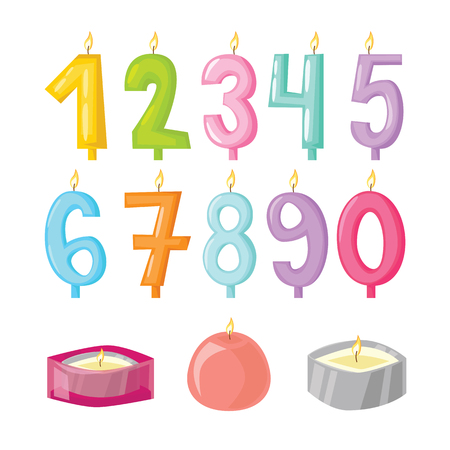1. Introduction to Numerology: Context and Cultural Relevance in the UK
Numerology, the study of numbers and their mystical significance, has intrigued individuals across cultures for centuries. Within the United Kingdom, numerology holds a unique position—bridging ancient traditions with contemporary curiosity. Historically, the fascination with numbers can be traced back to early civilisations such as Babylon and Egypt, eventually influencing Western thought through Greek philosophers like Pythagoras. In Britain, numerological ideas permeated folklore, literature, and even architectural design, reflecting a longstanding respect for symbolic systems. Today, while numerology might not be regarded as a mainstream scientific discipline, it enjoys renewed interest among people seeking personal insight or spiritual guidance. Both Chaldean and Pythagorean systems have found enthusiasts in the UK, who appreciate their distinct methods and the potential meanings attached to names and dates of birth. In modern British society, numerology often intersects with holistic practices and is occasionally referenced in popular media or alternative wellbeing circles. This blend of historical depth and evolving relevance makes numerology an intriguing subject for anyone curious about how numbers might influence our lives within a distinctly British context.
2. Chaldean Numerology: Origins and Core Principles
The Chaldean numerology system is one of the oldest known methods for interpreting numbers, tracing its roots back to ancient Babylon, in the region historically known as Chaldea (present-day Iraq). Unlike more modern systems, Chaldean numerology is deeply intertwined with the mystical traditions and spiritual practices of Mesopotamia, making it distinct in both approach and interpretation. The Chaldeans believed that numbers were inherently powerful and carried specific vibrational energies, a view that has influenced subsequent Western esoteric thought.
One of the defining features of Chaldean numerology is its unique alphabet-to-number mapping, which differs considerably from the Pythagorean system. Rather than assigning values sequentially from 1 to 9 across the alphabet, Chaldean numerology assigns numerical values based on sound vibrations and ancient symbolic meanings. This gives rise to subtle yet significant differences in analysis, especially when interpreting names or words.
Chaldean Alphabet-to-Number Correspondence
| Number | Letters |
|---|---|
| 1 | A, I, J, Q, Y |
| 2 | B, K, R |
| 3 | C, G, L, S |
| 4 | D, M, T |
| 5 | E, H, N, X |
| 6 | U, V, W |
| 7 | O, Z |
| 8 | F, P |
This assignment excludes the number 9 except in rare cases because the number was considered sacred and unassignable by the Chaldeans. This core distinction sets it apart from other numerological approaches such as Pythagorean numerology.
Key Characteristics of Chaldean Numerology
- Emphasis on vibration: Letters are valued for their energetic qualities rather than their position in the alphabet.
- Name analysis: Greater focus is placed on analysing current names (the name you use daily) rather than birth names alone.
- Sacred treatment of numbers: The number 9 is rarely used in calculations due to its spiritual significance.
Main Differences from Other Systems
- Alphabet mapping is non-linear and based on sound and symbolism.
- The exclusion of number 9 in most calculations.
- An emphasis on present-life influences over pre-destined factors.
This ancient system continues to intrigue those interested in uncovering deeper layers of meaning behind names and events—a testament to its enduring cultural significance and unique interpretive power within British esoteric circles today.

3. Pythagorean Numerology: Foundations and Development
The roots of Pythagorean numerology trace back to ancient Greece, where the philosopher Pythagoras (c. 570–495 BCE) established a systematic approach to understanding numbers and their intrinsic meanings. This system stands as one of the most influential frameworks in Western numerological tradition, still shaping contemporary perspectives in the UK today.
The Greek Origins of Pythagorean Numerology
Pythagoras and his followers believed that numbers were not merely mathematical symbols but held profound metaphysical significance. According to legend, Pythagoras travelled extensively, absorbing mathematical and mystical knowledge from Egypt and Babylon before founding his own school in Croton. In this community, numbers were revered as the underlying principles of both cosmic order and human life—a notion that continues to resonate with British numerologists fascinated by historical continuity.
Structured Methodology: Assigning Numbers to Letters
Unlike the Chaldean system’s more esoteric approach, Pythagorean numerology employs a straightforward method for assigning numerical values to the letters of the Latin alphabet. Each letter is mapped sequentially from 1 to 9, repeating as necessary (A=1, B=2, C=3… I=9, J=1, etc.). This method allows for the calculation of core numbers such as the Life Path Number or Destiny Number by summing the values derived from an individual’s full name and date of birth. This structured logic appeals to those in the UK who appreciate clarity and repeatability in metaphysical systems.
Pythagoras’ Enduring Influence in British Thought
Pythagorean numerology’s legacy persists strongly across Britain, influencing both personal spiritual practices and popular culture. Many contemporary numerologists in the UK credit Pythagoras for legitimising numerology as a field worthy of study and introspection. His emphasis on rational structure over mysticism aligns well with the British penchant for analytical thinking and empirical exploration, making this system particularly accessible within local contexts.
4. Methods and Calculations: Step-by-Step Processes
To provide a practical understanding of both Chaldean and Pythagorean numerology, let’s walk through their methods in detail, using everyday British names for illustration. This step-by-step guide will help you perform calculations yourself, whether you’re curious about your name or simply want to experiment with these ancient systems.
Chaldean Numerology: The Calculation Process
Chaldean numerology assigns numbers from 1 to 8 (excluding 9) to each letter based on its vibrational value. Here is the standard Chaldean chart:
| Number | Letters |
|---|---|
| 1 | A, I, J, Q, Y |
| 2 | B, K, R |
| 3 | C, G, L, S |
| 4 | D, M, T |
| 5 | E, H, N, X |
| 6 | U, V, W |
| 7 | O, Z |
| 8 | F, P |
Worked Example: “Oliver” (A familiar British name)
Assign the corresponding numbers:
O = 7
L = 3
I = 1
V = 6
E = 5
R = 2
Now add the values together: 7 + 3 + 1 + 6 + 5 + 2 = 24. Reduce to a single digit by adding: 2 + 4 = 6. So the Chaldean number for “Oliver” is 6.
Pythagorean Numerology: The Calculation Process
The Pythagorean system uses numbers from 1 to 9 assigned sequentially to the alphabet. Here’s the standard chart:
| Number | Letters |
|---|---|
| 1 | A, J, S |
| 2 | B, K, T |
| 3 | C, L, U |
| 4 | D, M, V |
| 5 | E, N, W |
| 6 | F, O, X |
| 7 | G, P, Y |
| 8 | H, Q, Z |
| 9 | I, R |
Worked Example: “Oliver” (Pythagorean method)
Assign the corresponding numbers:
O = 6
L = 3
I = 9
V = 4
E = 5
R = 9
Now add the values together: 6 + 3 + 9 + 4 + 5 + 9 = 36. Reduce to a single digit by adding: 3 + 6 = 9. Thus the Pythagorean number for “Oliver” is 9.
Troubleshooting and Local Tips for Calculation Accuracy
- If your name includes a hyphen or an apostrophe (as in some Irish or Scottish surnames), simply ignore these symbols and only count the letters.
- If you use a nickname commonly in daily life (e.g., “Liz” instead of “Elizabeth”), calculate both forms; many practitioners believe both carry significance.
- The process is the same whether you use your first name or full name; just sum all letter values accordingly.
- If the result after addition is a double-digit number like “11,” “22,” or “33,” these are considered ‘master numbers’ in some traditions and may not be reduced further unless specified.
- If you wish to check place names (such as “London” or “Manchester”), follow exactly the same steps as with personal names.
The Value of Worked Examples in Practice
This step-by-step approach makes it easy for anyone in Britain—or anywhere else—to calculate their own numerological profile using either Chaldean or Pythagorean methods. As with any engineering task or experiment: accuracy comes from careful attention to detail and consistent methodology.
5. Interpretation and Meaning: Numbers in British Life
In both Chaldean and Pythagorean numerology, the interpretation of numbers is not merely a technical exercise but a nuanced art that intertwines with cultural context. When applied to British life, numerological findings can take on unique shades of meaning shaped by local traditions, values, and everyday experiences.
The Symbolism of Numbers in a British Context
Numbers such as 1, 7, and 9 frequently surface in British culture. For instance, the number 7 has long been associated with luck and mystique—think of the “seven wonders” or the classic phrase “at sixes and sevens,” denoting confusion but also transition. In numerology, a person with a Life Path Number 7 might be seen as introspective and analytical; when applied to a British setting, this could be interpreted as embodying the reserved yet thoughtful character often attributed to the national identity.
Numerological Values and Everyday Scenarios
Pythagorean numerology assigns specific qualities to each number: 1 as leadership, 2 as partnership, 3 as creativity, and so forth. In Britain’s context, these interpretations can be reflected in daily life—consider house numbers or birth dates. A family living at number 4, for example, may embrace stability and tradition, aligning well with British sensibilities around home and community. Conversely, Chaldean numerology’s focus on vibration and energy might prompt some to choose wedding dates that reduce to ‘6’ for harmony or avoid ‘8’ due to its associations with material challenge.
Modern Examples: From Football to Tea Time
The influence of numbers extends into cherished British activities. The national passion for football often sees fans assign meaning to shirt numbers—number 10 signifying creativity or star quality, echoing Pythagorean interpretations. Likewise, the ritual of afternoon tea at precisely “four o’clock” resonates with ideas of orderliness (the number 4) prized in both numerological systems.
Numbers in Names: Personal Identity
Name analysis is another area where numerology meets British culture. Many parents consult name meanings—sometimes using Pythagorean or Chaldean systems—to select names that carry positive vibrations. A name like “Arthur,” reducing to a harmonious number according to Pythagorean calculation, may be chosen not just for historical resonance but for perceived energetic benefit.
Cultural Reflections and Caution
While numerology offers fascinating ways to interpret everyday life, it is generally approached in Britain as a curiosity rather than strict doctrine. People might enjoy discovering their Destiny Number while recognising it as one thread among many that shape their personal narrative—a typically pragmatic approach reflecting broader cultural attitudes towards mysticism.
In summary, numerological interpretations in the UK are coloured by local customs and values—from house numbers in leafy suburbs to favourite football shirts—illustrating how ancient methods adapt seamlessly into contemporary British life.
6. Practical Applications and Considerations in the UK
Numerology, though often seen as a mystical or esoteric practice, continues to find its place within various aspects of contemporary life in the UK. Both Chaldean and Pythagorean numerology are utilised by individuals seeking personal insight, guidance, or reassurance, particularly during moments of uncertainty or transition. In this section, we examine how these systems are employed in daily life, their influence on decision-making, and the extent to which they have permeated mainstream British culture.
Personal Decision-Making
Across the UK, people from diverse backgrounds turn to numerology for support in making personal choices—ranging from selecting auspicious dates for weddings or business launches to choosing baby names that resonate with positive vibrational energies. Some individuals consult numerologists when facing crossroads in their careers or relationships, hoping that the analysis of their names and birthdates can offer clarity or affirmation. While such practices might be viewed with scepticism by some, others find genuine comfort and motivation through numerological interpretations.
Integration into Everyday Life
The integration of numerology into everyday British life remains somewhat niche but is not without visibility. Workshops, online courses, and private consultations are available throughout the country, especially in larger cities like London and Manchester. Numerological content can also be found in lifestyle magazines and social media platforms catering to spiritual well-being. Despite this, numerology has not achieved the same level of mainstream acceptance as other complementary practices such as mindfulness or yoga.
Cultural Attitudes and Mainstream Perception
Within the broader context of British culture, there is a prevailing pragmatism and emphasis on empirical evidence. As such, numerology is often regarded with a degree of scepticism or reserved curiosity. Media representations typically frame it as an alternative or fringe interest rather than a scientifically validated discipline. Nonetheless, its presence endures among those who value introspection or wish to explore non-traditional avenues for self-understanding.
Considerations for Practitioners
For those interested in applying Chaldean or Pythagorean numerology within the UK context, it is important to approach these systems with both an open mind and a critical eye. Personal belief plays a significant role in deriving meaning from numerological readings. Practitioners should also remain sensitive to cultural nuances—recognising that while some may embrace numerology wholeheartedly, others may prefer to engage with it as a form of entertainment or philosophical exploration rather than a guiding principle.
In summary, while Chaldean and Pythagorean numerology do not command widespread mainstream adoption in the UK, they continue to serve as valuable tools for reflection and personal growth for many individuals. Their practical applications are most evident at the personal level—where curiosity meets tradition—and offer an intriguing lens through which to view one’s path in life.

